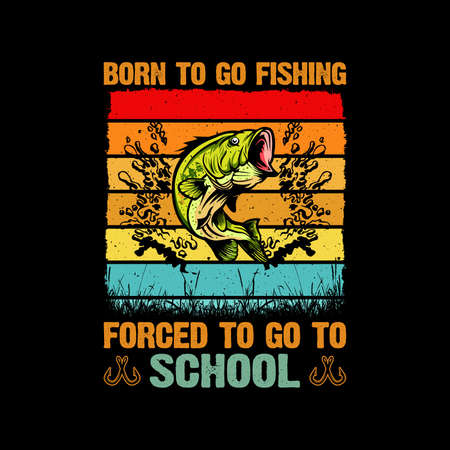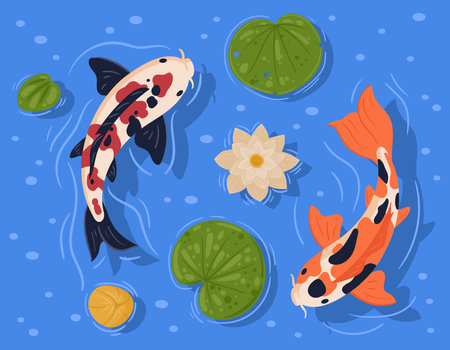1. Discovering Hidden Gems: Why Wild Carp Fishing in England?
There’s something truly special about casting a line into the tranquil, untouched waters of rural England, where wild carp fishing remains an authentic and rewarding pursuit. Unlike the regimented environment of heavily stocked commercial lakes, wild carp fishing is steeped in tradition and brimming with heritage, promising anglers a genuine connection to both fish and landscape. England’s diverse scenery—ranging from misty fenlands to secluded woodland pools—provides the perfect canvas for adventurous weekend escapes. Here, each waterway tells its own story, shaped by centuries of natural evolution and local lore. With every trip off the beaten path, you’re not just seeking carp; you’re immersing yourself in the rich tapestry of English angling culture, pursuing elusive treasures that thrive only in untamed environments. This pursuit offers both challenge and charm, inviting those with a keen sense of adventure to discover hidden gems and carve out memories well away from the crowds.
Finding Off-the-Beaten-Path Waters
For those seeking authentic wild carp fishing escapes, England’s less-trodden venues offer a unique blend of challenge and tranquillity. The process of finding these hidden gems demands both strategic research and sensitivity to local customs. Begin by consulting Ordnance Survey maps and online forums dedicated to wild fishing; angling clubs often share invaluable insights on lesser-known lakes, rivers, and gravel pits that remain off the commercial radar. Networking with local anglers is equally essential—this not only uncovers secret spots but also fosters respect for traditional fishing rights deeply rooted in the British countryside.
Essential Research Steps
| Step | Description |
|---|---|
| Map Analysis | Use detailed maps to locate secluded waters away from urban centres. |
| Forum Engagement | Join regional angling forums for venue tips and access advice. |
| Local Clubs | Contact local angling societies to learn about private or syndicate waters. |
| On-Site Reconnaissance | Visit potential venues to assess accessibility, stock health, and environmental conditions. |
Respecting Traditions and Community
The British angling scene values tradition, etiquette, and stewardship of the land. When targeting secluded waters, always seek permission where required—many spots fall under historic fishing rights managed by estates or clubs. Engage with the community: a friendly chat at the local tackle shop or pub can yield insider knowledge while demonstrating your commitment to responsible angling. Remember to leave no trace, adhere strictly to catch-and-release policies where enforced, and avoid sensitive spawning grounds during closed seasons.
Quick Tips for Ethical Wild Carp Fishing
- Obtain relevant permits or day tickets before fishing unfamiliar venues.
- Respect boundaries, signage, and biosecurity measures to prevent invasive species spread.
- Support conservation efforts by reporting poaching or pollution incidents to authorities.
The Value of Local Engagement
Building rapport with British anglers enriches your experience and ensures continued access for all. Embrace the culture: enjoy a cuppa by the bank, share stories, and celebrate the thrill of discovering truly wild English carp together.

3. Essential Tackle and Techniques for British Wild Carp
Strategic Gear Selection for Rugged English Waters
When embarking on a wild carp fishing escape in England’s lesser-trodden venues, your tackle selection can make or break the session. A reliable 2.75–3.25lb test curve rod from trusted British names like Greys or Century provides that crucial balance of backbone and sensitivity, perfect for unpredictable weather and snaggy margins. Pair it with a robust big pit reel—think Shimano Ultegra or Daiwa Emblem—to handle powerful runs from untamed fish. Given the wild nature of these waters, spool up with abrasion-resistant mainline (12–15lb mono or 30lb braid) to withstand hidden debris and dense weed beds.
Bait Choices: Keeping It Classic Yet Effective
For bait, wild English carp often favour natural offerings. Classic UK staples such as sweetcorn, luncheon meat, and tiger nuts remain effective, especially when fished over small beds of hemp and particle mixes. Don’t overlook the power of locally rolled boilies with understated flavours—think Scopex or plum—particularly when targeting wary, old carp unused to commercial feed pellets. A scattering approach works best to avoid overfeeding in sparsely stocked lakes and rivers.
Rigs That Deliver Under Pressure
With wild venues comes unpredictability. The versatile hair rig remains a go-to, presenting both bottom baits and pop-ups with confidence. For tricky margins or weed-choked swims, the chod rig offers excellent presentation above detritus, while a simple running lead setup excels in fast-flowing rivers. Always opt for camouflage terminal tackle from innovators like Korda or ESP to avoid spooking ultra-cautious carp accustomed to minimal angling pressure.
Weather-Proofing Your Approach
The British climate is notorious for its mood swings. Invest in a quality brolly system (Fox or Trakker are local favourites), lightweight waterproofs, and sturdy boots to keep you focused on your strategy rather than the rain clouds overhead. Ultimately, success on these off-the-beaten-path escapes comes down to matching time-tested British tactics with adaptive thinking—letting you unlock the true potential of England’s wildest carp haunts.
4. Weekend Break Essentials: Planning Your Carp Fishing Escape
Embarking on a wild carp fishing weekend in England’s hidden corners is as much about the experience as it is about the catch. To truly make the most of your off-the-beaten-path adventure, meticulous planning is key. Below, we’ll break down the essentials you’ll need to ensure a seamless British weekend getaway—from choosing accommodation and navigating unpredictable weather, to packing like a seasoned angler.
Choosing Local Accommodation
Staying close to remote waters means thinking beyond chain hotels. Consider these classic British options:
| Accommodation Type | Pros | Cons |
|---|---|---|
| Country Inns & Pubs | Authentic atmosphere, hearty food, local advice | Limited privacy, can be lively at night |
| Boutique B&Bs | Personal touch, home-cooked breakfast | May need to book well in advance |
| Campsites/Glamping Pods | Immersive nature experience, flexible budget options | Weather-dependent comfort |
| Self-Catering Cottages | Total independence, ideal for groups or families | Less interaction with locals |
Seasonal Considerations & Weather Wisdom
The British countryside is famously unpredictable. Spring and autumn offer fewer crowds but can be chilly and wet—prime time for big carp if you’re prepared. Summer delivers longer days but might bring more competition at prime swims. Always check local forecasts and daylight hours before setting off.
Packing Essentials for the British Angler’s Weekend
| Item | Why It Matters |
|---|---|
| Wellies (Wellington boots) | Muddy banks are part of the charm—dry feet are bliss. |
| Waterproof Jacket & Trousers | A sudden downpour won’t dampen your spirits—or your kit. |
| Layers (Fleece, Thermal Base) | The mercury drops fast after sunset, even in summer. |
| Thermos Flask (filled with builder’s tea) | No British angling trip is complete without a proper brew. |
| Bivvy or Shelter | Shelter from wind and rain during those marathon sessions. |
| Torch & Spare Batteries | Dawn starts and late finishes demand reliable light. |
| Local OS Map or GPS Device | Avoid getting lost while exploring those secret lakes. |
| Bait & Tackle Spares | Difficult to find specialist shops in rural areas; plan ahead. |
| Reusable Water Bottle & Snacks | Keeps you fuelled for long hours by the bank. |
| Camera or Smartphone | Capture your PB (personal best) and scenic moments alike. |
A Final Tip: Embrace the Local Pace
The joy of a wild carp fishing escape lies in slowing down. Allow yourself time to chat with locals at the pub, sample regional dishes (think steak and ale pie after a cold day), and soak up England’s rural tranquillity. With careful planning and classic kit, you’ll be ready for whatever the English weather—and its wily carp—throws at you.
5. Sustainable Angling: Etiquette and Responsible Fishing
The Unwritten Rules of Wild Carp Fishing in the UK
Wild carp fishing across England’s hidden waterways is a uniquely rewarding pursuit, but with it comes an unspoken code that sets true anglers apart. Beyond skill and strategy, the most respected carpers understand their role as custodians of these tranquil stretches, adhering to etiquette that goes hand-in-hand with the British tradition of responsible sport. Whether you’re stalking wild carp in secluded rivers or lakes tucked away from the crowds, these unwritten rules help ensure both the fish and the environment thrive for generations of anglers to come.
Catch and Release: Ethics at the Water’s Edge
Perhaps nowhere is the British sense of fair play more evident than in catch and release practice. It’s not just about landing a cracking mirror or common carp; it’s about ensuring their survival post-capture. Use barbless hooks where possible, wet your hands before handling, and always support the fish properly—never on hard ground. A quick photo for your album is fine, but returning your quarry swiftly to its watery home is paramount. Seasoned anglers often carry unhooking mats and weigh slings, standard kit for anyone serious about welfare.
Respecting Riverside Environments
The beauty of England’s off-the-beaten-path venues lies in their undisturbed landscapes. As such, every angler has a duty to leave no trace. Bag up all litter—even line trimmings or bait tins—and take it home if bins aren’t provided. Avoid trampling delicate bankside flora and keep noise to a minimum; remember, you’re sharing these spots with wildlife and fellow outdoor enthusiasts alike. Many local clubs also encourage members to report any fly-tipping or pollution they encounter, helping protect these precious habitats for all.
Backing Conservation Initiatives through Local Angling Clubs
If you want to truly make a difference while enjoying your weekend break, consider supporting local angling clubs dedicated to conservation work. Many are involved in habitat restoration, invasive species control, and educational outreach within their communities. Some organise river clean-ups or fundraise for fishery improvements—initiatives that go far beyond a day ticket or club membership fee. By getting involved or simply respecting club rules (such as close season restrictions), you’re doing your bit to safeguard wild carp stocks and maintain access to untamed waters well into the future.
Final Word
Sustainable wild carp fishing isn’t just about personal bests—it’s about preserving England’s angling heritage through mindful action on and off the bank. Embrace these traditions and you’ll find yourself welcomed by both nature and the local angling community on every off-grid escape.
6. Telling Your British Carp Tale: Sharing and Celebrating Your Adventure
After an unforgettable weekend tracking wild carp in England’s hidden waters, your adventure doesn’t end as you pack up your bivvy and rods. In fact, one of the most cherished aspects of British carp fishing is the tradition of storytelling—sharing your experiences with fellow anglers both online and on the bankside. Embracing this culture not only celebrates your own achievements but also helps to foster a vibrant, supportive community across the UK.
Joining UK-Based Carp Angling Forums
If you’re looking to stay connected and keep your angling passion alive between trips, consider joining one of the many well-established UK carp fishing forums. Platforms such as The Carp Forum, Carp.com, and various Facebook groups provide spaces where like-minded enthusiasts exchange tips, swap tales, and discuss everything from bait choices to secret locations. Registering is straightforward, and most forums have sections dedicated specifically to trip reports—perfect for posting about your latest off-the-beaten-path escape.
Contributing to the Local Scene
By sharing your stories, photos, and even technical insights—such as successful rigs or watercraft techniques—you add value to the collective knowledge of the British carp scene. Don’t shy away from engaging in discussions or offering advice to newcomers; the camaraderie and mentorship found within these communities are at the very heart of British angling culture. Attending local club meetings or participating in social events organised through these forums can further cement your place within this passionate network.
Honouring the Storytelling Tradition
The best British carp tales aren’t just about record-breaking catches—they’re woven with humour, adversity, and those moments when nature surprises you. Take pride in recounting both triumphs and mishaps: whether it’s outwitting a wary old mirror carp or simply enjoying a misty dawn brew by the water’s edge. These anecdotes forge bonds across generations of anglers, preserving the spirit of wild carp fishing for years to come.
So, after your next wild carp fishing escape in England, take a moment to document your journey. Share it with others—online and offline—and become part of the living tapestry that is British carp angling. Your tale could inspire someone else’s next great adventure along Britain’s secluded banks.


